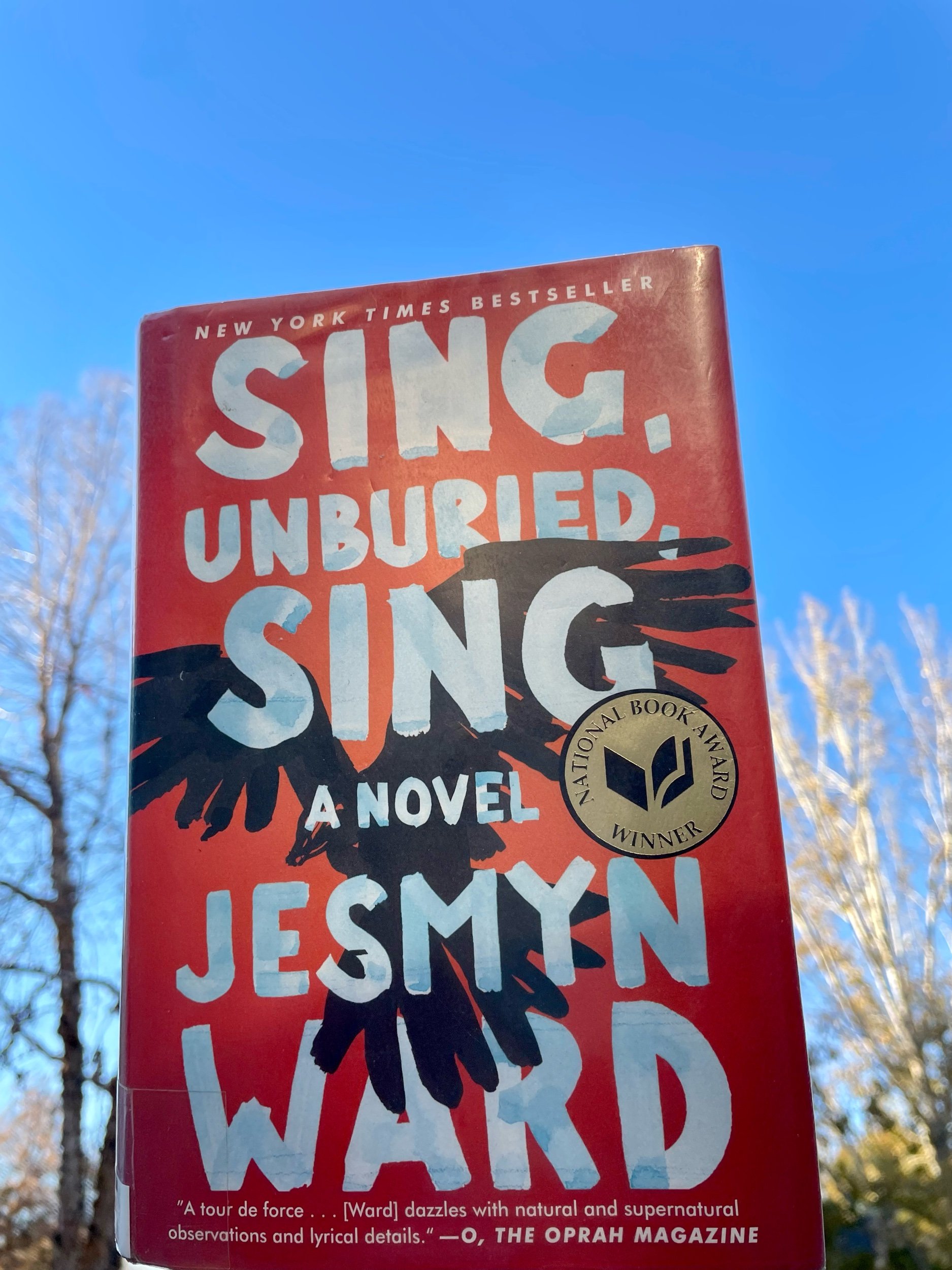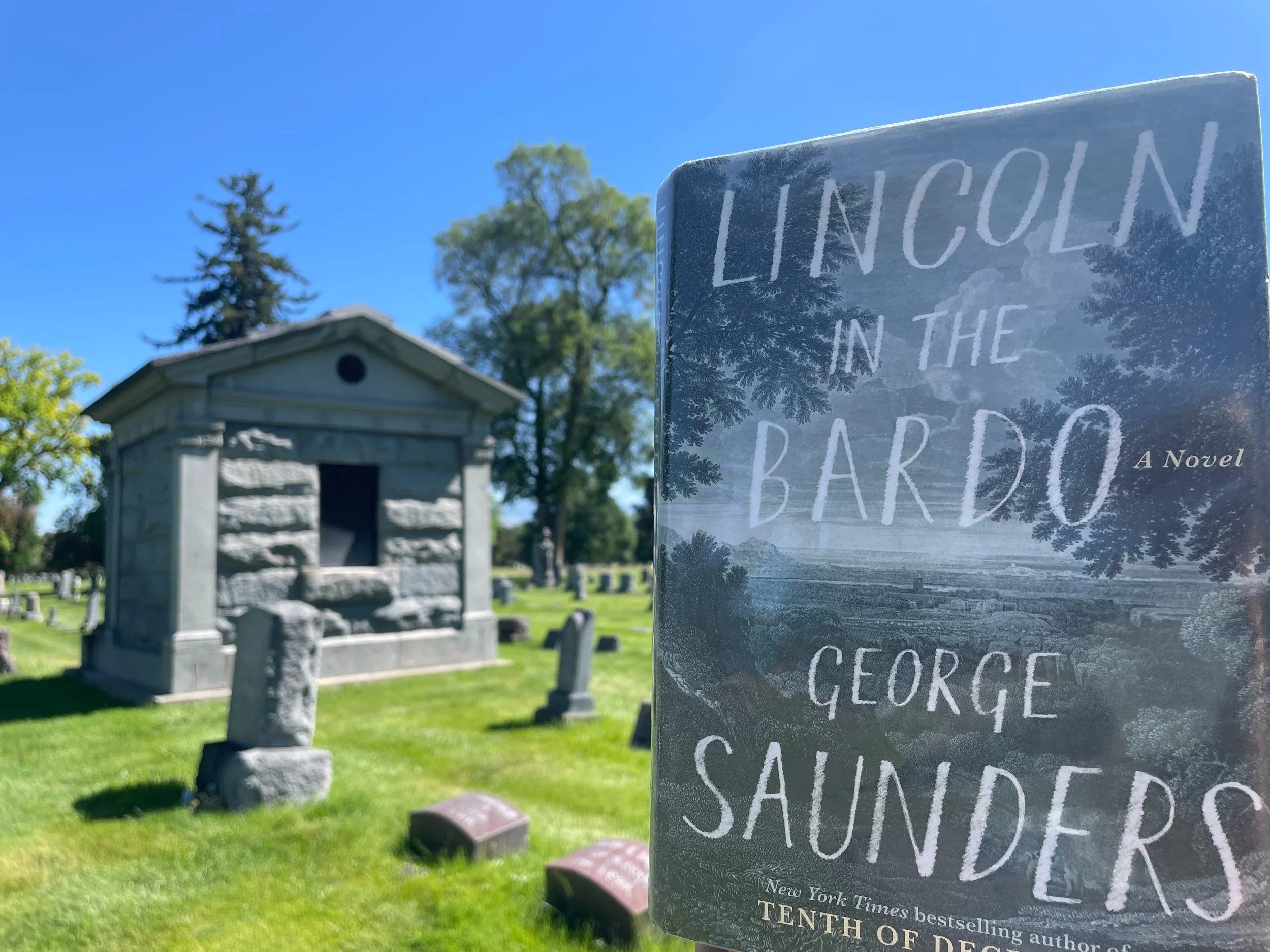Sing, Unburied, Sing
Many people have spoken of the power in Jesmyn Ward’s novel Sing, Unburied, Sing (2017), but nothing can prepare its reader for the heart-wrenching narrative held within its pages. This story, told in alternating, first-person perspective, is a story of place. A native of the Mississippi Delta, Ward knows Sing, Unburied, Sing’s setting intimately. The delta, and its many unburied spirits, come to life in this moving coming-of-age story rich with themes of belonging, loss, addiction, and so much more.
There are so many forgotten stories, unspeakable tragedies, and terrible injustices that haunt Sing, Unburied, Sing. The Mississippi Delta has witnessed centuries of forgotten atrocity. Through carefully crafted fiction, Ward presents readers with characters and stories that represent the often untold horrors of a place that has been backdrop to centuries of pain.
The novel opens and closes in Jojo’s perspective. He is thirteen, the child of a Black mom and a white dad in contemporary Mississippi. He is a classic liminal character but Jojo bridges more than race. Raised primarily by his maternal grandparents, Jojo has watched his mother fall further and further into addiction until she is no longer mom but only Leonie. The novel tells Jojo’s hero’s journey as he accompanies his mother and her fellow-addict friend while caring for his baby sister (also in tow) to collect his father from jail in the northern part of the state. This prison is a hell his maternal grandfather (Pop) experienced as a teen; a hell that haunts him throughout his life. Jojo has come of age listening to Pop’s stories of the place. In time, Jojo finds himself facing Pop’s ghosts and generationally they come full circle. Jojo, like so many contemporary American youth, experiences transracial, transgenerational families struck down by loss and addiction. Despite his many challenges, Jojo is strong and his story is as wildly unexpected as it is inspirational.
While much of the story is Jojo’s coming-of-age narrative, his is just one of the stories in Sing, Unburied, Sing. Indeed, this novel reflects the complexity of any one story. Through its alternating perspective, the novel reveals the humanity of all its characters. Their many backstories, experiences, grief, and attempts at redemption swirl into one story. As such, Sing, Unburied, Sing reminds readers that no narrative is simple nor is it linear. Likewise, the novel reminds us, life is organic and complex brimming with ghosts and, at times, the unexplainable.
Magical realism dances through the pages of Ward’s moving novel. The dead walk among the living, and a select few (of the living) sense their presence. Through magical realism and profound storytelling, Ward gives voice to the forgotten; the unburied sing. Her novel realizes the imperative of its title and calls forth the unburied to sing.
For all these reasons and more, Ward’s Sing, Unburied, Sing is a must-read book. It is little wonder that it won the National Book Award. It certainly deserves a place on any list of great works of American literary fiction.
Bibliography:
Ward, Jesmyn. Sing, Unburied, Sing. Scribner: 2017.
A Few Great Passages:
“Home is about the earth. Whether the earth open up to you. Whether it pull you so close the space between you and it melt and y'all one and it beats like your heart.”
“Sometimes the world don’t give you what you need, no matter how hard you look. Sometimes it withholds.”
“Some days later, I understood what he was trying to say, that getting grown means learning how to work that current: learning when to hold fast, when to drop anchor, when to let it sweep you up.”






